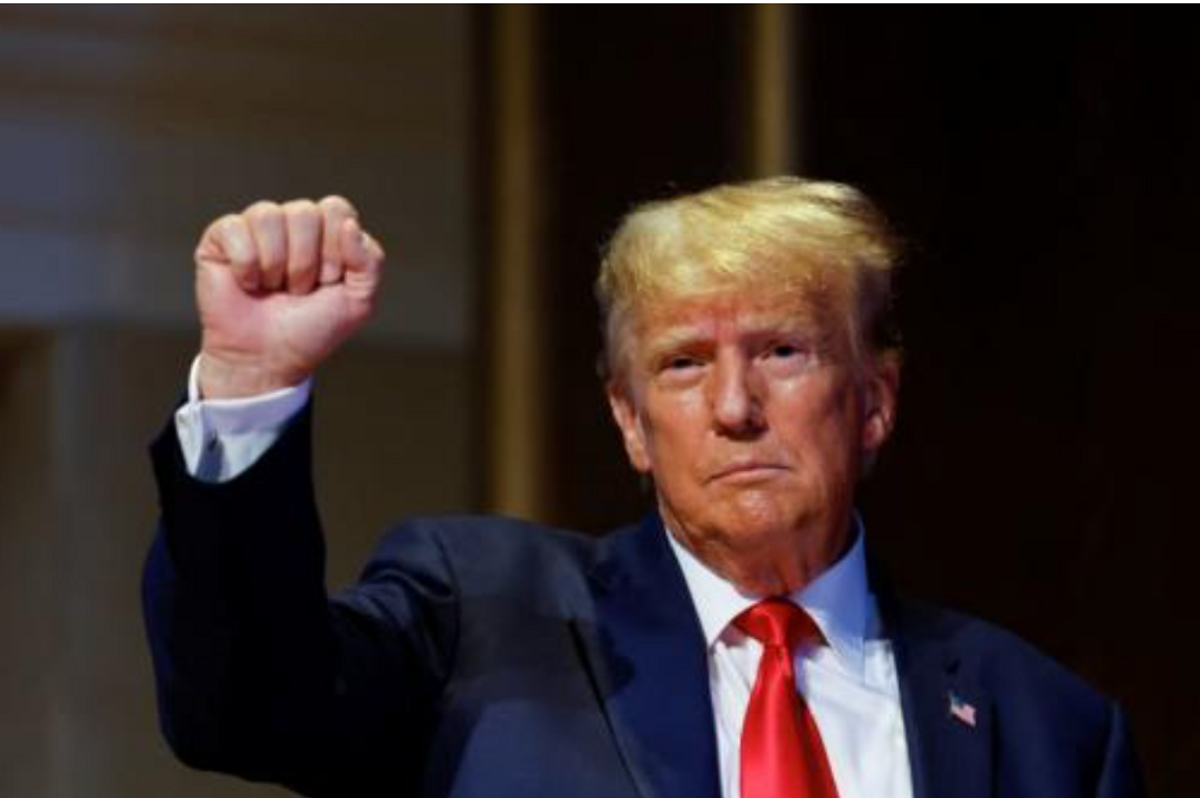After Trump’s Stunning Firing Of Comey, Dems Immediately Demand A Special Prosecutor To Continue Investigations

Reprinted with permission from Alternet.
In the wake of President Trump’s firing of FBI director James Comey, Democrats called for an independent special prosecutor to take over the ongoing criminal investigation of possible ties between Trump’s entourage and Russian state officials.
The decision, now in the hands of Rod Rosenstein, a career Justice Department official, will shape the future of Trump’s embattled presidency. The unprecedented allegations that a president of the United States colluded with a foreign power have plagued Trump since his inauguration. Democrats likened his dismissal of Comey to President Richard Nixon’s firing of Watergate special prosecutor Archibald Cox in October 1973. Dubbed the Saturday Night Massacre, Nixon’s firing led to impeachment proceedings and his resignation ten months later.
Rosenstein is no stranger to partisan politics. Nominated for a federal judgeship by President George W. Bush in 2006, Rosenstein was blocked by Maryland’s two Democratic senators, and he remained at the Justice Department.
Rosenstein assumed responsibility for the Russia investigation in early March. After the Washington Post reported that Attorney General Jeff Sessions failed to disclose two meetings with Russian ambassador Sergey Kislyak, Sessions recused himself from the investigation and passed responsibility to Rosenstein.
During his confirmation hearings Rosenstein said he was “not in a position to answer” whether a special prosecutor was needed in the Russia investigation. Rosenstein said he had not yet read the U.S. intelligence community’s findings that the Russian government had interfered in the 2016 presidential election to help Trump and harm Hillary Clinton.
At the time, Rosenstein said that if he thought current officials were wrong about the need for a special counsel, he would “overrule them.”
After Comey’s firing, Democrats demanded that Rosenstein do just that.
This is Nixonian. Deputy AG Rod Rosenstein must immediately appoint a special prosecutor to continue the Trump/Russia investigation.
— Senator Bob Casey (@SenBobCasey) May 9, 2017
“This unprecedented interference by the President of the United States in an ongoing criminal investigation leaves no doubt that the only way to uncover the truth about Russian interference in our election is with an independent investigation,” said Senator Jeanne Shaheen (D-NH).
“There can be no question that a fully independent special counsel must be appointed to lead this investigation,” said Sen. Ron Wyden (D-OR). “At this point, no one in Trump’s chain of command can be trusted to carry out an independent investigation.”
As Democrats pressed the attack, Republicans on Capitol Hill distanced themselves from the White House.
“I am troubled by the timing and reasoning of Director Comey’s termination,” said Richard Burr (R-NC), chairman of the Senate Intelligence Committee, which was scheduled to hear Comey on Thursday.
Senator John McCain (R-AZ) said he was “disappointed” by Trump’s action and he renewed his call for a “special congressional committee to investigate Russia’s interference in the 2016 election.” Comey’s dismissal, he said, “confirmed the need and urgency of such a committee.”
Senator Susan Collins (R-ME) said that “Any suggestion that today’s announcement is somehow an effort to stop the FBI’s investigation… is misplaced.”
Conflicting Views
Rosenstein’s view of Comey’s actions differed markedly from that of Trump and Sessions.
In his May 9 memo to the president, Rosenstein recommended Comey be fired for his handling of the Bureau’s now-closed investigation of Hillary Clinton’s email server. Rosenstein criticized Comey’s public comments in July 2016 on the Justice Department’s decision not to prosecute Clinton. He also rebuked Comey for his announcement, just ten days before the election, that the FBI had found additional emails, which turned out not to be relevant.
Until Tuesday, Trump and Sessions had both defended Comey’s actions.
During the campaign, Trump said “it took guts” for Comey to investigate Clinton. On April 12, Trump expressed confidence in Comey. On May 3, White House press secretary Sean Spicer repeated that Comey had Trump’s support.
In notifying Comey of his dismissal, Trump reversed himself, declaring, “You are not able to effectively lead the Bureau.”
Third Man Out
Comey is the third U.S. official with responsibility for investigating Russia’s role in the 2016 election whom Trump has fired.
In January Trump dismissed Acting Attorney General Sally Yates after she twice warned the White House counsel Donald McGahn that National Security Adviser Michael Flynn had made false statements about his meeting with Russian officials. At the time, Trump said that Yates was fired because she objected to the constitutionality of the president’s travel ban on visitors from seven majority-Muslim countries.
In February, Trump dismissed Preet Bharara, U.S. Attorney for the Southern District of New York, who had indicted Russian and Turkish nationals with alleged connections to Trump. In a post-election meeting in November, Trump had told Bharara that he could stay on. Three months later, a senior administration official told CNN that Bharara was asked for his resignation along with 46 other U.S. attorneys, “because of uniformity. It’s important to have consistency and uniformity in matters like this.”
On Tuesday, Trump agreed with Rosenstein’s recommendation that Comey be fired. So did Sessions, despite his claim to have recused himself of any role in the investigation.
U.S statute calls for the Attorney General “or Acting Attorney General in cases where the Attorney General is recused” to appoint a special counsel if prosecution by the Justice Department “would present a conflict of interest for the Department,” or if it would “in the public interest.”
Plunged into crisis by Trump’s actions, Washington awaits Rosenstein’s decision.
Jefferson Morley is AlterNet’s Washington correspondent. He is the author of JFK and CIA: The Secret Assassination Files (Kindle) and Snow-Storm in August: Washington City, Francis Scott Key, and the Forgotten Race Riot of 1835.
This article was made possible by the readers and supporters of AlterNet.


